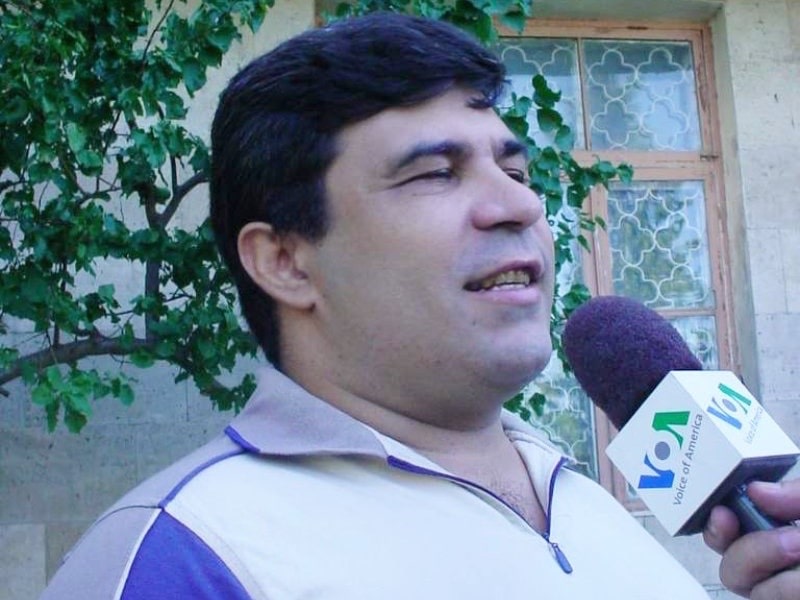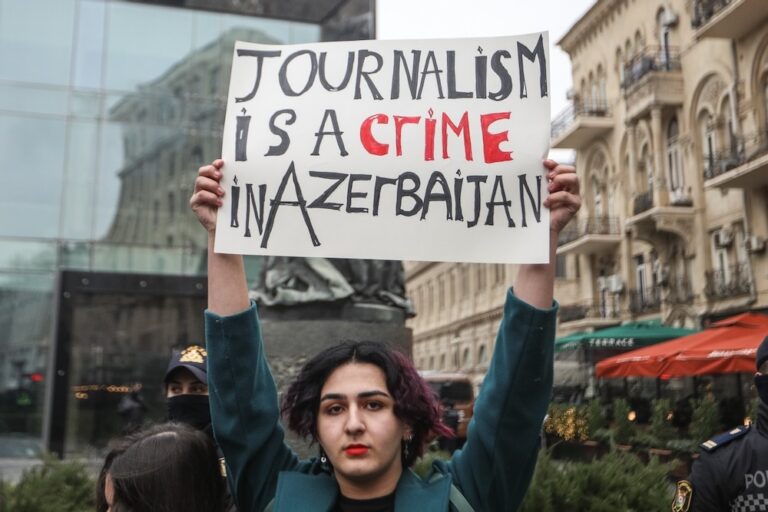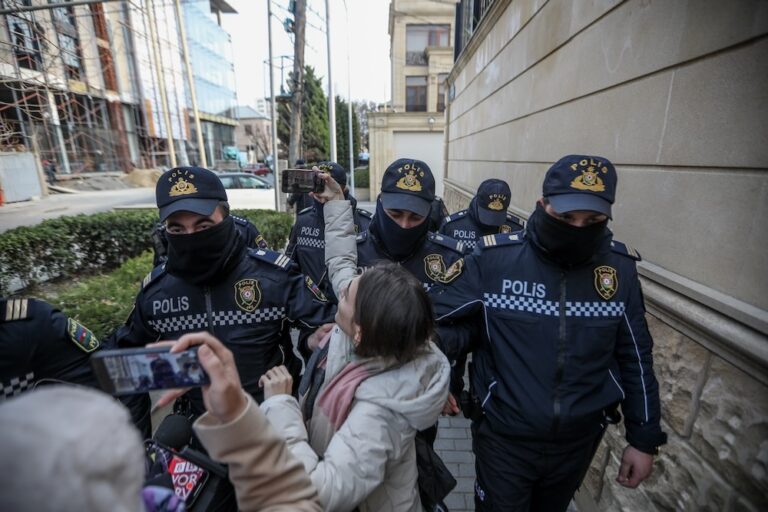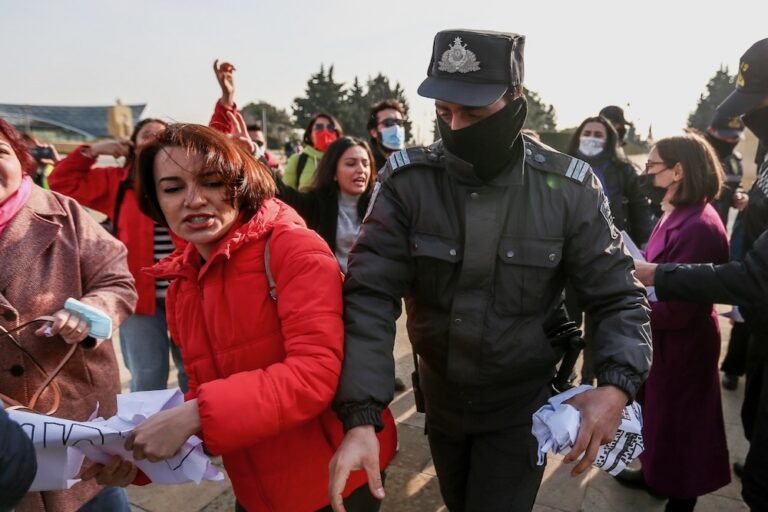Over the past 12 years, the law enforcement agencies involved in the investigation of journalist Elmar Huseynov's murder have demonstrated deliberate negligence, effectively helping to conceal the truth behind the crime.
This statement was originally published on irfs.org on 2 March 2017.
Today [2 March 2017] marks the 12-year anniversary of the still unsolved murder of well-known Azerbaijani journalist Elmar Huseynov. The Institute for Reporters’ Freedom and Safety (IRFS) reiterates its condemnation of the impunity given to those responsible for this murder and the steady stream of crimes of violence against journalists in Azerbaijan.
“We honour Elmar’s legacy as a courageous journalist. We have not forgotten Elmar or the four other journalists killed in Aliyev’s Azerbaijan, and we will do everything we can to ensure that justice is done,” IRFS CEO Emin Huseynov said.
“If the authorities fail to bring the responsible parties to account, we will turn to the Global Magnitsky Act to seek justice for our colleagues,” Huseynov noted.
In March 2005, Monitor magazine editor-in- chief Elmar Huseynov was murdered in a well-organized attack that appeared to be a contract-style killing. After he had received many death threats, he was gunned down in the stairwell of his apartment building in Baku, where he died instantly. The day after the murder of Elmar Huseynov, President Ilham Aliyev pledged that the perpetrators and mastermind would be found and punished as soon as possible. Twelve years later, the authorities have failed to investigate this case adequately and no one has been brought to justice for this brutal attack.
Huseynov was well known as a hard-hitting investigative journalist who was highly critical of the authorities. He had been an ardent critic of President Aliyev and his wife, Mehriban Aliyeva, who, in an unprecedented move was appointed as First Vice President last week. His case has become deeply symbolic in Azerbaijan, reminding the Azerbaijani media community of the courage needed to pursue investigative journalism and of the inherent risks associated with criticising the Aliyevs.
Over the past 12 years, the law enforcement agencies involved in the investigation have demonstrated deliberate negligence, effectively helping to conceal the truth behind the crime.
The Serious Crimes Investigation of Prosecutor General’s Office immediately launched a criminal case under Articles 120.2.4 (deliberate homicide) and 228.1 (illegal possession of firearms) of the Criminal Code of Azerbaijan Republic. A month later, on 6 April 2005, the case was re-classified under Article 277 (terrorism) of the Criminal Case, and transferred from the Prosecutor’s Office to the Ministry of National Security.
While Azerbaijani law enforcement agencies claim to have identified the suspected perpetrators, Teymuraz Aliyev and Tahir Hubanov, they are reluctant to initiate an international wanted notice with Interpol regarding the suspects and do not demand their extradition from Georgia, neither show any attempts to interrogate them in Georgia. In striking contrast, the very same law enforcement agencies rushed to demand extradition of the Ukrainian-Russian-Israeli blogger Alexander Lapshin from Belarus to Azerbaijan.
Furthermore, the authorities in many ways prevent civil society from investigating Huseynov’s murder, by refusing to disclose the investigation materials.
In another example, despite multiple media reports that former General, Akif Chovdarov, currently standing trial for charges of corruption, abuse of authorities and extortion, could have played a murky mediator role between the organizers and the perpetrators of this crime, he has not been asked a single question about this case.
This, along with the deliberate dismissal of agents from US and Turkish intelligences, who had been assisting Azerbaijani law enforcement agencies in investigation of this crime from the first days, suggests that influential members of the current government are in some way implicated in the journalist’s murder, and are not interested in solving the case.
In subsequent years, journalists Alim Kazimli (19.06.2005) Novruzali Mammadov (17.08.2009), Rafig Tagi (23.11.2011) and Rasim Aliyev (09.08.2015) paid the highest price for exercising their right to freedom of expression. All four of these journalists were intentionally harmed, and died at the hospital as a result of willful negligence by the authorities (Novruzali Mammadov died in the prison hospital due to poor prison conditions and lack of medical care). However, none of the medical workers involved have been brought to justice.
IRFS condemns the use of violence to restrict freedom of expression and calls for the authorities to end this vicious cycle by immediately and impartially investigating all attacks against journalists and bringing those responsible to justice.
IRFS calls upon the Council of Europe, the OSCE and the United Nations, of which Azerbaijan is a member, to put pressure on the Azerbaijani authorities, and urge them to comply unconditionally with their human rights obligations.
IRFS also calls on international donors, including the International Monetary Fund, World Bank, European Investment Bank, and European Bank for Reconstruction and Development, to refrain from supporting the initiatives of the ruling regime until the government can provide clear guarantees that it will end its crackdown on the civil society along with a clear plan of urgent radical reform.
In the event that the authorities refuse to follow the path of reform, and continue to pursue the current policies of mass repression, IRFS calls upon the governments committed to democracy and human rights to implement sanctions against Azerbaijani officials responsible for the systematic violation of human rights.



